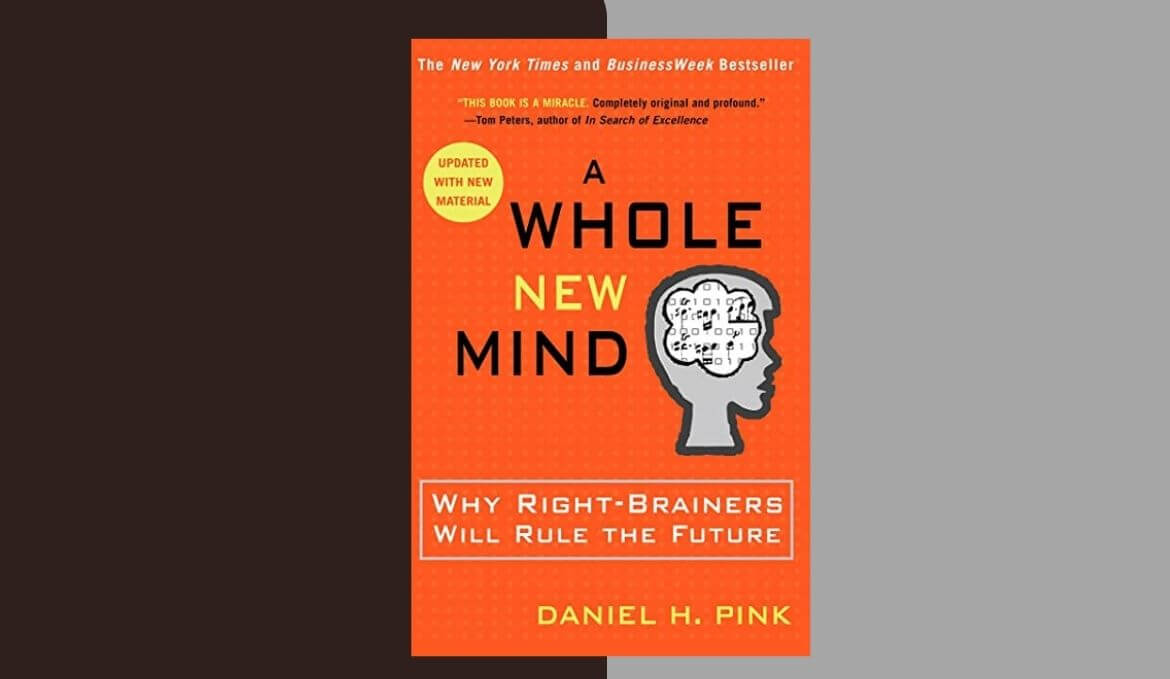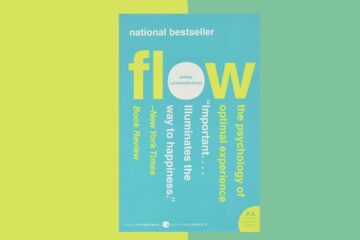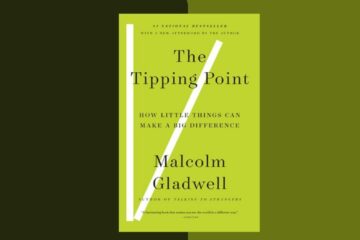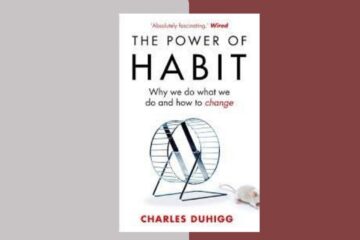An Entirely different Psyche by Daniel H. Pink is a historic book that investigates the significance of right-cerebrum thinking in this day and age. A Whole New Mind, written by Pink, is widely regarded as a must-read for anyone aspiring to success in the twenty-first century. Pink is a well-known author and public speaker who writes about business and the shifting nature of the workplace.
The central argument of the book is that the Conceptual Age has replaced the Information Age, in which design, empathy, and creativity are more important than memorizing facts and thinking critically. Pink argues that in this new age, people who can think with their right brain will do well, while people who can only think with their left brain will fall behind.
It is impossible to overstate the significance of this idea. It is becoming increasingly apparent that creativity, empathy, and other right-brain skills are what distinguish us from machines as technology continues to automate numerous left-brain tasks. In fact, these skills will be needed for a lot of jobs in the future, like social workers and therapists and graphic designers and copywriters.
Pink identifies six essential skills for success in the Conceptual Age throughout the book: design, narrative, symphony, compassion, play, and significance He argues that we can harness the power of our right brain and realize our full potential by developing these skills.
We’ll look at the full summary of A Whole New Mind in this article, where Pink outlines the book’s main ideas and sets the stage for the rest of the text. Each of the six aptitudes will be discussed in greater depth and their applications in the workplace, education, and personal development in the following sections.
Accepting the power of our right brain is more important than ever as we enter a new era in society and work. We hope that this article will serve as a helpful introduction to the fundamental ideas in A Whole New Mind, which is a must-read for anyone wishing to thrive in the Conceptual Age.
The Concept of the Book The left-brain vs. right-brain theory
An Entirely different Brain by Daniel H. Pink is a book that challenges the conventional left-cerebrum believing that has overwhelmed our general public for quite a long time. Pink presents the left-brain versus right-brain theory, arguing that left-brain thinking, which places an emphasis on logical and analytical thinking, was once highly valued. But Pink says that right-brain thinking, which emphasizes creativity and empathy, will be more important in the 21st century.
Pink asserts that the “Conceptual Age”‘s rise is the primary cause of this shift. Left-brain thinking and the capacity to analyze and process a lot of information were once rewarded in the Information Age. However, human abilities like creativity, empathy, and intuition become increasingly valuable as machines become more sophisticated and take on many of these responsibilities.
Pink argues that in the Conceptual Age, those who can think holistically, combine information, and generate novel concepts will achieve success. Right-brain thinking comes into play here. In today’s world, a skill that is highly valued is the capacity to see the big picture and connect concepts that appear to be unrelated.
Pink gives examples of how right-brain thinking skills can be developed, which is becoming increasingly important. For instance, he suggests that right-brain thinking can be developed through learning design, which places an emphasis on creativity and aesthetics. Moreover, he recommends that narrating is another fundamental right-cerebrum expertise that can be created through figuring out how to make a convincing story.
It is impossible to overstate the significance of learning to think with one’s right brain. Using one’s left brain is no longer sufficient in today’s world. Achievement will arrive at the people who can think inventively, relate to other people, and understand the situation from start to finish. Pink’s An Entirely different Psyche is a fundamental aide for anybody hoping to foster these basic right-cerebrum thinking abilities and flourish in the Conceptual Age.
How to Develop the Six Essential Aptitudes
According to Daniel H. Pink, success in the Conceptual Age depends on having the six essential skills of design, story, symphony, empathy, play, and meaning. But how can these abilities be developed? We’ll look at some ways to improve each of these six essential skills in this article.
Design
Design is about more than just looking good. It’s also about being useful and being creative. Try to develop an appreciation for beauty in your everyday life to improve your design skills. Pay attention to how everyday things like furniture, appliances, and even packaging are designed. You can likewise take a stab at making something yourself, whether it’s a painting, a piece of stoneware, or even a site.
Story
In today’s world, being able to tell a compelling story is a crucial skill. Start by learning the fundamentals of storytelling to improve your storytelling abilities. Take a class, read books about the subject, or even practice telling stories with friends and family. Try to include details that appeal to the senses and emotions in your readers to make your stories more engaging. Practice your delivery and how to convey your message through body language.
Symphony
In the Conceptual Age, it is essential to be able to combine information and see the big picture. Try to look for connections between seemingly unrelated things to improve your symphony skills. Attend lectures or seminars, read books on a variety of topics, and try to consider how the ideas you learn could be applied to other aspects of your life or work.
Empathy
Empathy is essential for connecting with others and forming relationships. Try to put yourself in other people’s shoes to improve your empathy. Actively listen to other people and try to comprehend their point of view. Volunteering or working in a field that involves helping others is a good way to develop empathy. Develop an openness and curiosity about people who are different from you.
Play
Incorporating play into work and daily life can foster innovation and creativity. To foster your play abilities, attempt to track down ways of making your work more charming. Try different things with various ways to deal with undertakings and attempt to move toward them with a fun loving demeanor. Play games or other types of play every day, whether you play board games with friends or start a new hobby.
Meaning
Personal fulfillment and happiness depend on finding meaning and purpose in life. To foster your significance abilities, begin by contemplating your basic beliefs and what means quite a bit to you. Work toward achieving goals that are in line with these values. Look for ways to help the greater good, whether it’s by volunteering, getting involved in politics, or just helping other people.
All in all, fostering the six fundamental aptitudes framed in A Totally different Psyche is fundamental for outcome in the Calculated Age. You can unleash your full potential and harness the power of your right brain by developing your design, story, symphony, empathy, play, and meaning skills. Try putting some of these methods into practice every day to see if they can help you become a more balanced and successful person.
Applications of the Six Essential Aptitudes
Daniel H. Pink argues in his book A Whole New Mind that success in the Conceptual Age requires mastering the six essential skills of design, story, symphony, empathy, play, and meaning. Be that as it may, how could these abilities be applied in different parts of life, like the work environment, schooling, and self-awareness and advancement? We will examine the applications of these six essential skills in this article.
In the Workplace
Design, story, symphony, empathy, play, and meaning skills can be extremely beneficial in the workplace. Story skills can be useful when creating compelling marketing campaigns or presentations, while design skills can be useful when creating visually appealing and functional products. Orchestra abilities can assist workers with understanding the situation from start to finish and consider some fresh possibilities, while sympathy abilities can be urgent for building associations with partners and clients. While meaning skills can help employees align with the company’s values and mission, play skills can help foster creativity and innovation.
In Education
The six essential abilities can also be utilized in the educational setting. Story skills can assist educators in communicating complex concepts in a relatable way, while design skills can be useful in the creation of engaging and effective lesson plans and materials. Empathy skills can be crucial for creating a safe and inclusive learning environment, and symphony skills can help students see connections between various subjects. Learning can be made more fun and interesting with play skills, and with meaning skills, students can find purpose and meaning in their studies.
In Personal Growth and Development
In the final stage of personal growth and development, the six essential abilities can be utilized. Plan abilities can be utilized to make a wonderful and useful living space, while story abilities can be important for conveying individual encounters and objectives. Empathy skills can be essential for building strong relationships with family and friends, and symphony skills can assist individuals in recognizing connections between various aspects of their lives. While meaning skills can assist in clarifying personal values and objectives, play skills can assist individuals in exploring new hobbies and interests.
Design, story, symphony, empathy, play, and meaning are the six essential skills that can be used in many different areas of life, such as the workplace, education, and personal growth and development. Individuals can unleash their full potential and harness the power of their right brain by developing these skills. Whether you are an expert, an understudy, or essentially somebody hoping to develop and improve, the abilities framed in A Whole New Mind can be extraordinarily important for outcomes in the conceptual age.
Applying Right-Brain Thinking in Business and Leadership
In A Whole New Mind, Daniel H. Pink contends that what’s to come has a place with imaginative masterminds and that conventional left-mind believing is presently sufficiently not. Instead, he suggests that in order for businesses and individuals to thrive in the modern era, they need to cultivate right-brain skills like empathy, design, and creativity. In this article, we’ll investigate the job of right-mind thinking in business and administration, and give instances of organizations and pioneers who have effectively applied these ideas
The Importance of Right-Brain Thinking in Leadership and Business
Pink identifies six essential skills for right-brain thinking development: design, narrative, symphony, compassion, play, and significance Because they enable individuals and organizations to innovate and resolve complex issues, these skills are essential for success in today’s economy.
Another important skill for right-brain thinking in business is the ability to tell stories. Companies can build their brand, connect with customers, and differentiate themselves from rivals by being able to tell a compelling story. Storytelling, for instance, is used by Airbnb to foster a sense of community and connection among its customers.
In leadership, right-brain thinking requires empathy as well. Empathic leaders are better able to understand their employees’ and customers’ needs and points of view, which can help them make better decisions and create a more positive work environment. Starbucks’ former CEO, Howard Schultz, is well-known for his compassionate leadership style, which contributed to the company’s expansion into a global brand.
Examples of Businesses and Leaders Who Have Utilized Right-Brain Thinking
Effectively numerous businesses and leaders have utilized right-brain thinking effectively in their strategies for leadership and business. Several examples include:
- Airbnb: As previously stated, storytelling is used by Airbnb to foster a sense of community and connection among its users. The organization likewise utilizes configuration remembering to make an easy-to-understand stage that is outwardly engaging and simple to utilize.
- Patagonia: Patagonia is a company that cares about the environment and is committed to sustainability. Yvon Chouinard, the company’s founder, has used his platform to spread a message of social and environmental responsibility. He has been a vocal supporter of environmental causes.
- Steve Jobs: Steve Jobs, the co-founder of Apple, was known for his design-centric approach to business. He was of the opinion that products should not only be useful but also attractive and easy to use. Additionally, Jobs placed a strong emphasis on storytelling, which helped Apple establish a solid brand identity and establish an emotional connection with its customers.
Key Takeaways of A Whole New Mind
In his book A Whole New Mind, Daniel H. Pink argues that developing right-brain thinking skills is necessary for success in the Conceptual Age. This encourages people to embrace right-brain thinking skills. All through the book, he frames the six fundamental aptitudes of plan, story, ensemble, sympathy, play, and importance, and offers viable exhortation on the most proficient method to foster these abilities.
To summarize, the book argues that analytical and logical left-brain thinking is no longer sufficient for success in today’s world. To thrive in the Conceptual Age, individuals must instead cultivate right-brain thinking skills like creativity, empathy, and big-picture thinking.
This book was extremely insightful and thought-provoking for me personally. I was intrigued by the idea of improving my right-brain thinking abilities because I have always been a left-brain thinker. I particularly appreciated the book’s emphasis on the significance of empathy, meaning, and play, as I believe these abilities are frequently undervalued in our society.
From the workplace to personal relationships, I believe that adopting right-brain thinking skills will be essential for success in the future. We can reach our full potential and thrive in the Conceptual Age by cultivating our imagination, empathy, and ability to see the big picture.
In conclusion, A Whole New Mind provides an insightful viewpoint on the ever-changing nature of work and the skills required for success in today’s world. We can overcome the difficulties of the Conceptual Age and realize our full potential as individuals and as a society by adopting right-brain thinking skills.



